Plastic, Rubber & Recycle
In the plastic industry, metal detectors (also known as “metal detection systems” or “metal separators”) are critical quality control devices used to identify and remove metal contaminants from raw materials or finished products, ensuring production safety and product quality. Their necessity is highlighted in the following aspects:
1.Protection of Production Equipment
Plastic pellets are typically made from recycled plastics (e.g., PET, HDPE, PP) or virgin materials, which may contain metal impurities such as screws, iron filings, or aluminum fragments. If these metals enter production equipment (e.g., crushers, extruders, injection molding machines, blow molding machines, or molds), they can casue severe damage, including:
Wear and tear on screws or barrels, reducing equipment lifespan.
Scratched molds, leading to detective products or unplanned downtiome.
Catastrophic failure, such as mechanical jams or even explosion risks in extreme cases.
Metal detectors can scan material before they enter granulators or extruders, ensuring contaminated batches are rejected in time to prevent equipment damage.
2.Final Product Safety Assurance
Plastic pellets are widely used in high-purity applications, such as food packaging, medical devices, and electronic components.
To mitigate risks, a secondary metal detection stage is recommended before before final packaging to verify compliance with customer specifications.
Two Metal Detector Option for Your Needs:
1.Free-Fall (Gravity-Fed) Metal Detectors
Can be directly integrated with extruders or injection molding machines.
Ideal for small-sized plastic pellets.
2.Belt Conveyor Metal Detectors
Feature a larger detection aperture.
Suitable for sprue material and final packaged products.
Both solutions enhance production efficiency while safeguarding equipment and product quality.
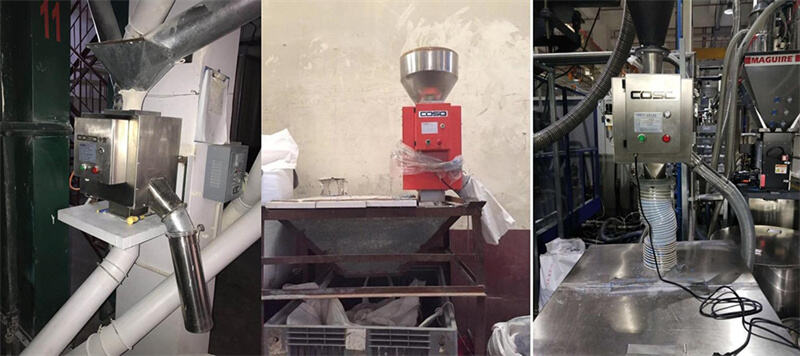
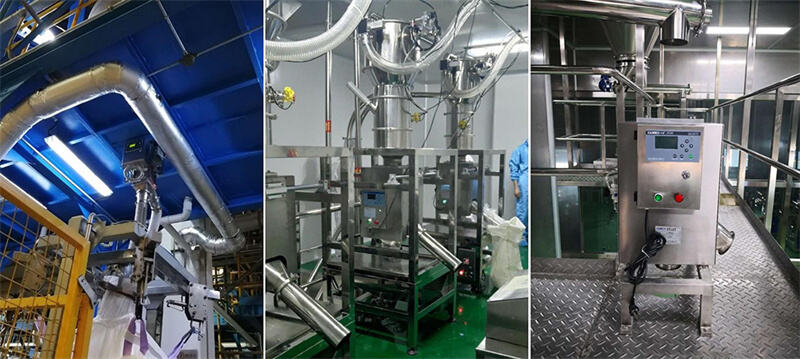
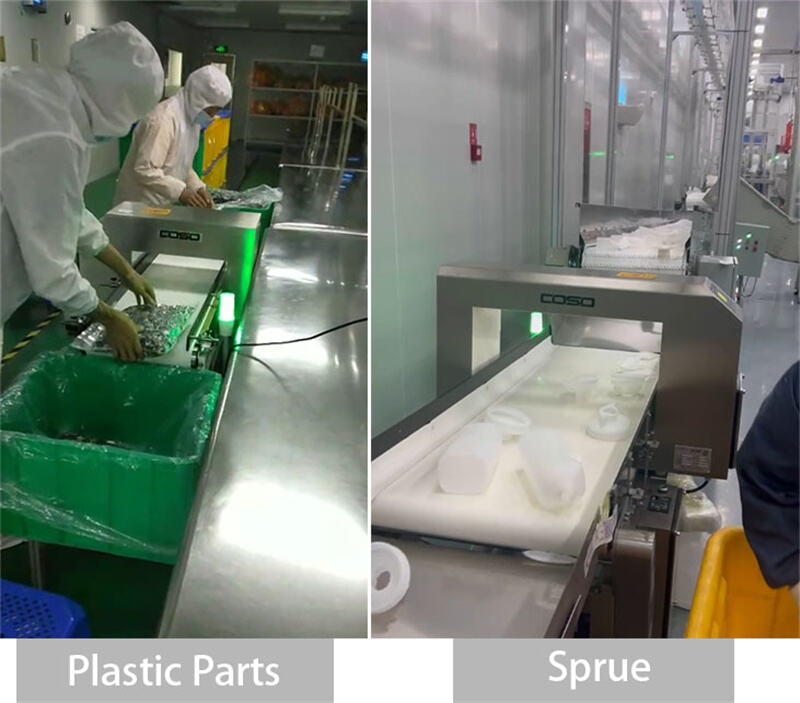
Automatic checkweighers are also widely used in the plastic industry to ensure precise weight compliance and product integrity. They perform the following critical functions:
1.Net Weight Verification - Accurately measure the weight of each bag of plastic pelltes or finished products to ensure compliance with standerd specifications, preventing underfilling or overfilling and maintaining adherence to trade regulations.
2.Component Inspection - Detect missing or excess parts in packaged plastic products, helping to avoid defective shipments and ensuring complete assemply before distribution.
By integrating automatic checkweighing into production or packaging lines, manufacturers can enhance quality consistency, reduce meterial waste, and meet regulatory and customer requirements effectively.
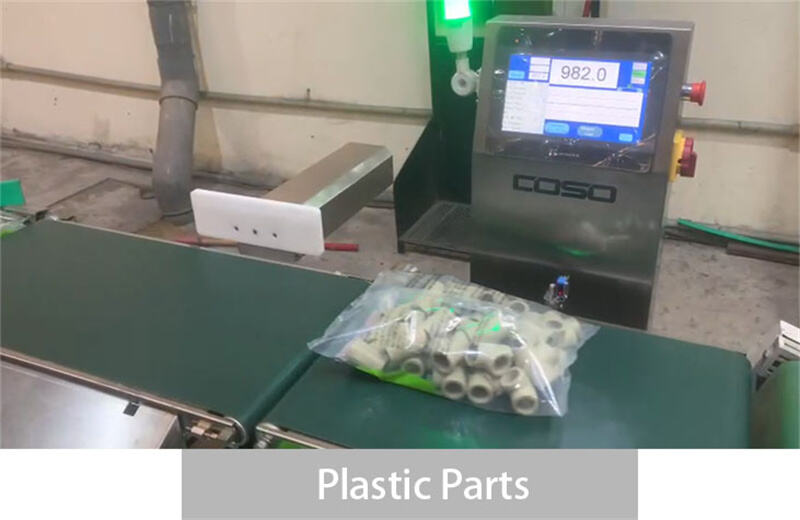
During the production of rubber products, metallic impurities may be introduced in two main ways:
1.Raw Material Contamination
Natural rubber, synthetic rubber, carbon black, and fillers may contain metal impurities (e.g., nails, wires, or machine debris) introduced during mining, transportation, or storage.
2.Equipment Wear & Process Contamination
During mixing, calendering, or vulcanization, metal particles may detach from machinery (e.g., mixer blades or rollers) due to wear and tear.
Impacts of Metallic Impurities:
Compromised strength, elasticity, and insulation properties of rubber products.
Accelerated aging or premature failure.
Metal detectors help identify and eliminate such contaminants, ensuring product reliability.
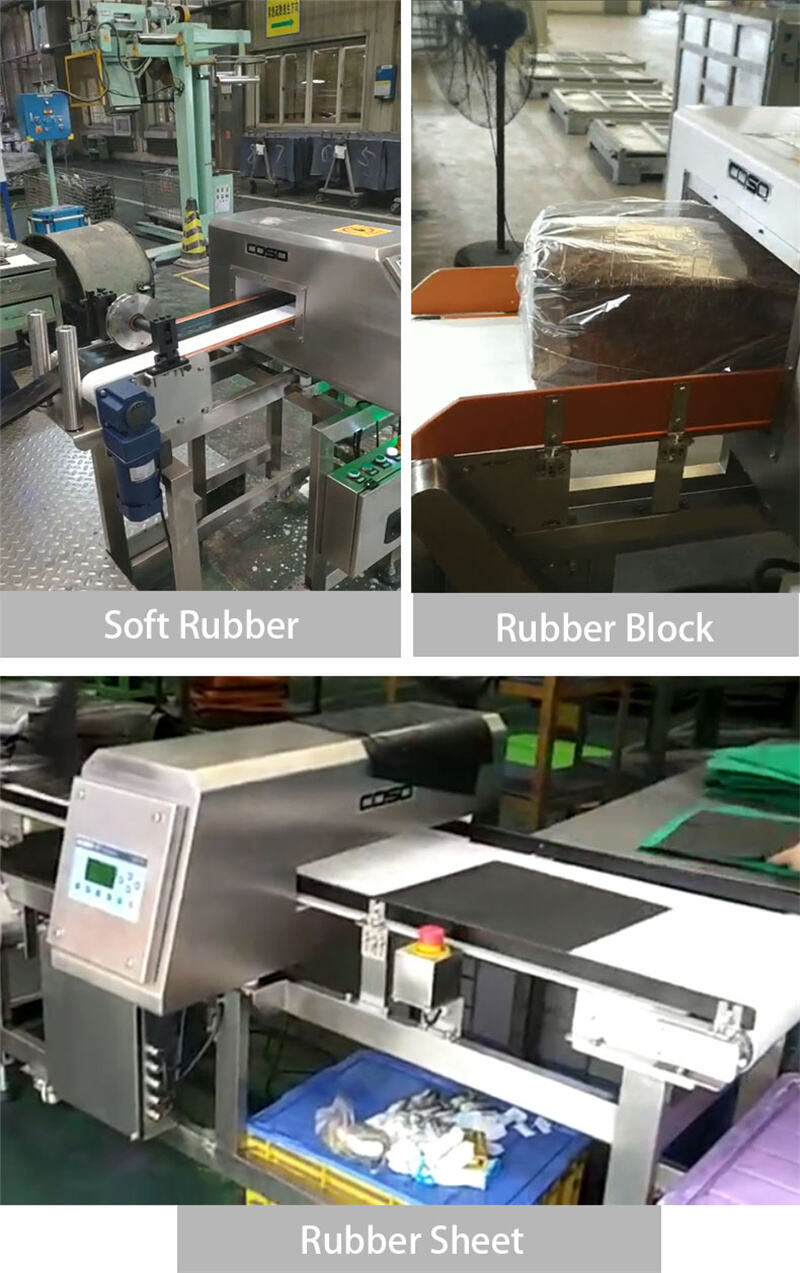
Dongguan Coso Electronic Tech Co., Ltd.














































